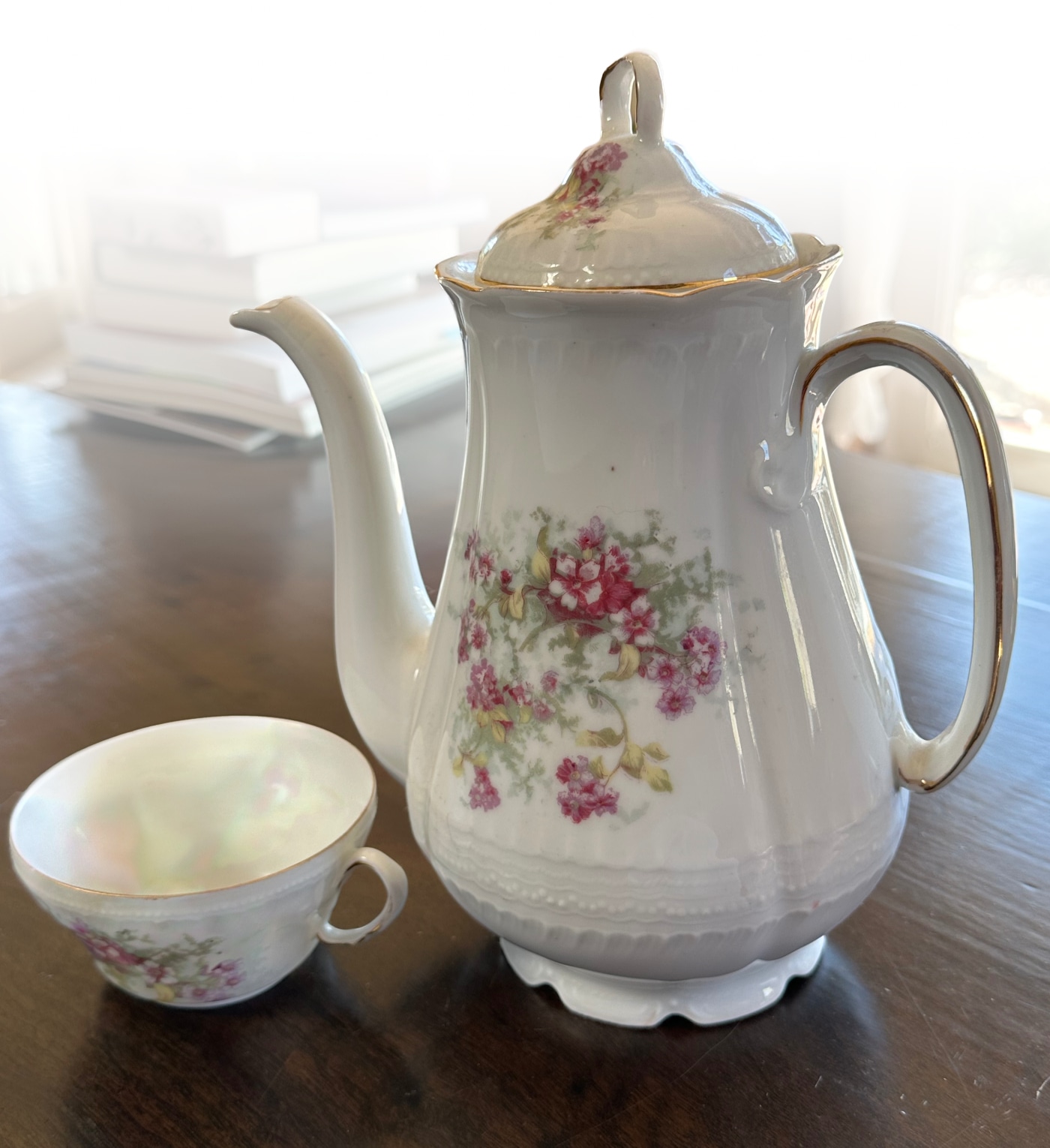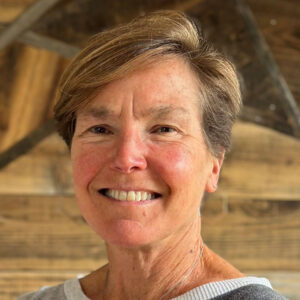Becoming Part of Each Other’s History
At Compton Foundation we believe real reparations can’t happen solely through institutions. Repair must also happen at the personal and interpersonal level. When we bypass human relationships, even if the people involved are acting in a professional or volunteer capacity, we haven’t really confronted how supremacy operates within all of us. Any attempts toward true healing will remain incomplete. Compton Foundation Fellow Caitlin Brune opens up about her healing process in this letter to others who would confront their inner selves.
By Caitlin Brune
As a Compton Foundation Fellow, my work is to understand and engage in relational repair. As I do so, I’m in community with brave wayfinders who are also traveling the path of reckoning, acknowledging, healing, and making restitution. In San Diego, California, I came alongside a Compton Foundation grantee partner, the Museum of Us, and have been feeling into the legacies of settler colonialism and its imprint in my consciousness. When I’m brave, I’ve been subjecting myself to what Eve Tuck and K. Wayne Yang call “the unbearable searchlight of complicity, of having harmed others just by being [my]self.”
In this searchlight, I can see and acknowledge where I am not in right relationship with my Indigenous neighbors, near and afar. Preparing a session for CHANGE Philanthropy’s Unity Summit, I had the opportunity to learn from Eva Trujillo, a siny ‘Iipay-Kumeyaay (northern woman) and Museum of Us board member. Through interactions with Eva and her colleagues, I am beginning to grasp how Kumeyaay songs, dances, verbal history and stories, belongings, and inherent ethos of responsibility root a community of beings in a place. I am learning how one’s territory and its ecology of human and more-than-human beings, with the ceremonies, rituals, and sacred objects that enliven them, and ever-present ancestors, cohere one’s sense of belonging. From this understanding, I feel how any disruption to these inextricable ties—let alone the harms of genocide, forced removal, thievery of cultural belongings, enslavement—represents a grave harm.
The Museum of Us holds some 75,000 cultural resources acquired through colonial pathways. These Indigenous belongings include ancestors’ remains. The museum acknowledges the truths of its origin story, not sparing shameful or horrifying details. Eva quietly evokes the unexplainably deep wounds these holdings represent: “We have no ceremony for reburying our loved ones.”
I let the immense sadness and rage I feel in hearing Eva’s words sink in. I hold it alongside the devotion, care, and enthusiasm for reckoning-toward-repair that radiates from the staff and trustees I’ve come to know through the Museum. I hold it with the way this community of care also daylights the rich, multi-dimensional, far-reaching contributions of the Kumeyaay, Mayan, Latine immigrant, white settler, and other communities that shape the story of “us.” I stretch to hold the “both/and” of harm and repair, and the reality that they’re never one-sided.
As I learn, I become more attuned to how mindlessly I sometimes move to disenfranchise and make Indigenous culture invisible, how I sustain separation from land, and how I facilitate cultural appropriation. I begin to see how easily my respectful intentions can slip into a sort of exoticization that’s fundamentally dehumanizing. For me, this is spiritual work. It is an attentive, intentional re-attunement of my own heart and body to the place I inhabit, its complicated and difficult history, and the needs and gifts of both ancestors and living beings within my own context.
The Anishinaabe poet Rebeka Tabobondung writes:
We are waking up to our history from a forced slumber
We are breathing it into our lungs so it will be part of us again
It will make us angry at first
because we will see how much you stole from us and for how long you watched us suffer
I ask myself how those of us in bodies descended from people that came and settled, and people who lived in a place through hundreds of thousands of sunsets, step into the invitation to wake up to our shared history. How do we inquire soulfully what it means to hold ourselves accountable for what was done? How do we create a new story of us, woven with multi-dimensional worldviews, lived experience, fullness of feeling, and richness of knowing? Rebeka Tabobondung’s poem continues:
Then we will breathe our history back to you
you will feel how strong and alive it is
and you will feel yourself become a part of it
I’m sitting in my small cottage while I write these thoughts. My eyes fall on my Nana’s delicate white porcelain coffee pot, which sits on a prominent shelf, and I reflect on a recurring theme from the Unity Summit session: “Everything starts with the earth.” The pot connects me to my ancestor’s keen attention to beauty, thousands of acts of hospitality, love of family. Her tenderness vibrates gently through this high-fired vessel of living earth, materially connecting me to her, her mother before her, the hands who held it, the elements that shaped it, the people it was used to nourish.

I wonder: What would it mean to me if this precious remnant of our family’s culture and her life was taken without consent, locked up behind thick-paned glass, perched behind a nondescript caption, maybe “Baltimore woman’s coffee pot and saucers, c. 1920”? What if it were her bodily remains? Alongside these questions, another, deeper one stirs: What does it mean to acknowledge all the heirlooms I inherited—the delicate and the diabolical—as a white settler on land stolen from its original inhabitants, their bodies and objects broken in acts of conquest?
In the words of Anne Symens-Bucher of Canticle Farm, “It’s never too late for us to wake up, and to figure out what’s ours to do.” From my work with Compton Foundation, accompanied by the Museum of Us community, I have woven a prayer for myself that I offer to all who earnestly commit to acknowledgement, reckoning, redress, healing, and non-repetition—to figuring out what is ours to do.
May each of us find the courage needed to be with and heal the woundedness of disconnection and fragmentation and turn toward the promise of right relationship, based in mutual care, dignity, and belonging.
May we take up what is ours to do, redistribute what has been hoarded or piled upon in ways that lighten and allow vitality to flow, rebalancing relationships.
With fierce tenderness, may we engage with each other with greater grace and solidarity in pursuing a world free from oppression and violence.
May we listen to the earth & each other, through pain and grief toward healing and vision.
May we practice centering self-determination, sovereignty, and choice, nonviolence, and non-coercion.
May we live into sacred appreciation of relationality that permeates everything, inviting an ethic of entrustment that takes seriously Do No Harm.

Caitlin Brune, Compton Fellow
Caitlin Brune (she/her) is committed to a world where everyone experiences safety, dignity, and inherent worthiness. She does this by encouraging material wealth return by white wealth holders, both individuals and philanthropic institutions, coupled with committed relationships grounded in curiosity, care, humility, and grace. Caitlin has worked within the nonprofit and philanthropic sector to steward assets toward communities of great potential who are overlooked or undercapitalized. She currently organizes for changes in philanthropic foundations’ practice as Senior Fellow with Northern California Grantmakers.
Previously, Caitlin was a Senior Program Officer at Firelight Foundation and the May & Stanley Smith Charitable Trust. She also served as CEO of Community Health Trust of the Pajáro Valley, a health conversion foundation focused on improving health status and outcomes, especially for Latine residents. She seeks to replace systems of supremacy with mutually affirming, joyful ways of meeting essential needs, being in community, and co-designing how we live and work together with dignity, respect, and commitment to flourishing.
A Baltimore native and middle child in an Irish Catholic family of seven, Caitlin holds a Bachelor’s degree from Georgetown, with graduate training at Oxford and a public health degree from UC Berkeley. She’s a student and practitioner of somatic abolitionism as described by Resmaa Menakem with a lifelong commitment to anti-racist practice. Caitlin cultivates her vitality by neighbor organizing; swimming; nature bathing; reading poetry; hanging out with little ones, elders, and furry creatures; and putting her hands in the soil. She serves on the board of Ventures, an economic justice organization working in solidarity with working class Latine families in California’s Central Coast region.
Learn more about our Compton Foundation Fellows.